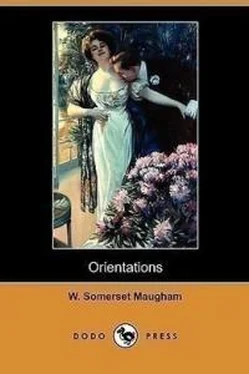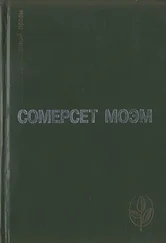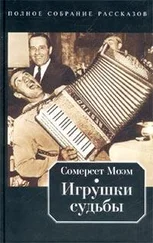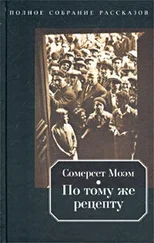Уильям Моэм - Orientations
Здесь есть возможность читать онлайн «Уильям Моэм - Orientations» весь текст электронной книги совершенно бесплатно (целиком полную версию без сокращений). В некоторых случаях можно слушать аудио, скачать через торрент в формате fb2 и присутствует краткое содержание. Год выпуска: 2014, Издательство: epubBooks Classics, Жанр: Классическая проза, на английском языке. Описание произведения, (предисловие) а так же отзывы посетителей доступны на портале библиотеки ЛибКат.
- Название:Orientations
- Автор:
- Издательство:epubBooks Classics
- Жанр:
- Год:2014
- ISBN:нет данных
- Рейтинг книги:5 / 5. Голосов: 1
-
Избранное:Добавить в избранное
- Отзывы:
-
Ваша оценка:
- 100
- 1
- 2
- 3
- 4
- 5
Orientations: краткое содержание, описание и аннотация
Предлагаем к чтению аннотацию, описание, краткое содержание или предисловие (зависит от того, что написал сам автор книги «Orientations»). Если вы не нашли необходимую информацию о книге — напишите в комментариях, мы постараемся отыскать её.
Orientations — читать онлайн бесплатно полную книгу (весь текст) целиком
Ниже представлен текст книги, разбитый по страницам. Система сохранения места последней прочитанной страницы, позволяет с удобством читать онлайн бесплатно книгу «Orientations», без необходимости каждый раз заново искать на чём Вы остановились. Поставьте закладку, и сможете в любой момент перейти на страницу, на которой закончили чтение.
Интервал:
Закладка:
Orientations
W. Somerset Maugham
Dedication
To Mrs Edward Johnston
Epigraph
C'est surtout, par ses nouvelles d'un jeune écrivain qu'on peut se rendre compte du tour de son esprit. Il y cherche la voie qui lui est propre dans une série d'essais de genre et de style différents, qui sont comme des orientations, pour trouver son moi littéraire.
The Punctiliousness of Don Sebastian
I
Xiormonez is the most inaccessible place in Spain. Only one train arrives there in the course of the day, and that arrives at two o'clock in the morning; only one train leaves it, and that starts an hour before sunrise. No one has ever been able to discover what happens to the railway officials during the intermediate one–and–twenty hours. A German painter I met there, who had come by the only train, and had been endeavouring for a fortnight to get up in time to go away, told me that he had frequently gone to the station in order to clear up the mystery, but had never been able to do so; yet, from his inquiries, he was inclined to suspect—that was as far as he would commit himself, being a cautious man—that they spent the time in eating garlic and smoking execrable cigarettes. The guide–books tell you that Xiormonez possesses the eyebrows of Joseph of Arimathea, a cathedral of the greatest quaintness, and battlements untouched since their erection in the fourteenth century. And they strongly advise you to visit it, but recommend you before doing so to add Keating's insect powder to your other toilet necessaries.
I was travelling to Madrid in an express train which had been rushing along at the pace of sixteen miles an hour, when suddenly it stopped. I leant out of the window, asking where we were.
'Xiormonez!' answered the guard.
'I thought we did not stop at Xiormonez.'
'We do not stop at Xiormonez,' he replied impassively.
'But we are stopping now!'
'That may be; but we are going on again.'
I had already learnt that it was folly to argue with a Spanish guard, and, drawing back my head, I sat down. But, looking at my watch, I saw that it was only ten. I should never again have a chance of inspecting the eyebrows of Joseph of Arimathea unless I chartered a special train, so, seizing the opportunity and my bag, I jumped out.
The only porter told me that everyone in Xiormonez was asleep at that hour, and recommended me to spend the night in the waiting–room, but I bribed him heavily; I offered him two pesetas, which is nearly fifteenpence, and, leaving the train to its own devices, he shouldered my bag and started off.
Along a stony road we walked into the dark night, the wind blowing cold and bitter, and the clouds chasing one another across the sky. In front, I could see nothing but the porter hurrying along, bent down under the weight of my bag, and the wind blew icily. I buttoned up my coat. And then I regretted the warmth of the carriage, the comfort of my corner and my rug; I wished I had peacefully continued my journey to Madrid—I was on the verge of turning back as I heard the whistling of the train. I hesitated, but the porter hurried on, and fearing to lose him in the night, I sprang forwards. Then the puffing of the engine, and on the smoke the bright reflection of the furnace, and the train steamed away; like Abd–er–Rahman, I felt that I had flung my scabbard into the flames.
Still the porter hurried on, bent down under the weight of my bag, and I saw no light in front of me to announce the approach to a town. On each side, bordering the road, were trees, and beyond them darkness. And great black clouds hastened after one another across the heavens. Then, as we walked along, we came to a rough stone cross, and lying on the steps before it was a woman with uplifted hands. And the wind blew bitter and keen, freezing the marrow of one's bones. What prayers had she to offer that she must kneel there alone in the night? We passed another cross standing up with its outstretched arms like a soul in pain. At last a heavier night rose before me, and presently I saw a great stone arch. Passing beneath it, I found myself immediately in the town.
The street was tortuous and narrow, paved with rough cobbles; and it rose steeply, so that the porter bent lower beneath his burden, panting. With the bag on his shoulders he looked like some hunchbacked gnome, a creature of nightmare. On either side rose tall houses, lying crooked and irregular, leaning towards one another at the top, so that one could not see the clouds, and their windows were great, black apertures like giant mouths. There was not a light, not a soul, not a sound—except that of my own feet and the heavy panting of the porter. We wound through the streets, round corners, through low arches, a long way up the steep cobbles, and suddenly down broken steps. They hurt my feet, and I stumbled and almost fell, but the hunchback walked along nimbly, hurrying ever. Then we came into an open space, and the wind caught us again, and blew through our clothes, so that I shrank up, shivering. And never a soul did we see as we walked on; it might have been a city of the dead. Then past a tall church: I saw a carved porch, and from the side grim devils grinning down upon me; the porter dived through an arch, and I groped my way along a narrow passage. At length he stopped, and with a sigh threw down the bag. He beat with his fists against an iron door, making the metal ring. A window above was thrown open, and a voice cried out. The porter answered; there was a clattering down the stairs, an unlocking, and the door was timidly held open, so that I saw a woman, with the light of her candle throwing a strange yellow glare on her face.
And so I arrived at the hotel of Xiormonez.
II
My night was troubled by the ghostly crying of the watchman: 'Protect us, Mary, Queen of Heaven; protect us, Mary!' Every hour it rang out stridently as soon as the heavy bells of the cathedral had ceased their clanging, and I thought of the woman kneeling at the cross, and wondered if her soul had found peace.
In the morning I threw open the windows and the sun came dancing in, flooding the room with gold. In front of me the great wall of the cathedral stood grim and grey, and the gargoyles looked savagely across the square…. The cathedral is admirable; when you enter you find yourself at once in darkness, and the air is heavy with incense; but, as your eyes become accustomed to the gloom, you see the black forms of penitents kneeling by pillars, looking towards an altar, and by the light of the painted windows a reredos, with the gaunt saints of an early painter, and aureoles shining dimly.
But the gem of the Cathedral of Xiormonez is the Chapel of the Duke de Losas, containing, as it does, the alabaster monument of Don Sebastian Emanuel de Mantona, Duque de Losas, and of the very illustrious Señora Doña Sodina de Berruguete, his wife. Like everything else in Spain, the chapel is kept locked up, and the guide–book tells you to apply to the porter at the palace of the present duke. I sent a little boy to fetch that worthy, who presently came back, announcing that the porter and his wife had gone into the country for the day, but that the duke was coming in person.
And immediately I saw walking towards me a little, dark man, wrapped up in a big capa , with the red and blue velvet of the lining flung gaudily over his shoulder. He bowed courteously as he approached, and I perceived that on the crown his hair was somewhat more than thin. I hesitated a little, rather awkwardly, for the guide–book said that the porter exacted a fee of one peseta for opening the chapel—one could scarcely offer sevenpence–halfpenny to a duke. But he quickly put an end to all doubt, for, as he unlocked the door, he turned to me and said,—
Читать дальшеИнтервал:
Закладка:
Похожие книги на «Orientations»
Представляем Вашему вниманию похожие книги на «Orientations» списком для выбора. Мы отобрали схожую по названию и смыслу литературу в надежде предоставить читателям больше вариантов отыскать новые, интересные, ещё непрочитанные произведения.
Обсуждение, отзывы о книге «Orientations» и просто собственные мнения читателей. Оставьте ваши комментарии, напишите, что Вы думаете о произведении, его смысле или главных героях. Укажите что конкретно понравилось, а что нет, и почему Вы так считаете.










